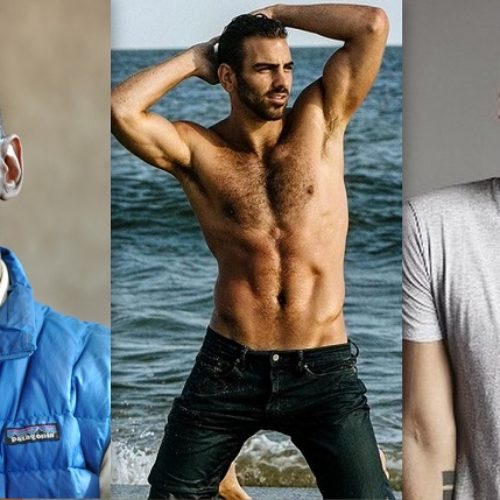Kenya Is Close To Legalizing Homosexuality. What About The Rest Of Africa?
Across Africa and the world, LGBT communities are anxiously watching out for a court case in Kenya’s capital. The court is expected to either retain a colonial-era law that criminalizes homosexuality, or scrap it, which would put Kenya in a small group of African nations that give LGBT people equal legal rights.
A ruling in the case was originally scheduled Friday February 22, but the court in Nairobi postponed the decision until May 24, saying it needed more time because its judges were busy and were still working through voluminous files in the case.
Kenya’s current law is one that people in other former British colonies will find familiar. The prohibition of “carnal knowledge against the order of nature” is repeated verbatim in the penal codes of dozens of them. Some are asking whether those Victorian-era words and morals belong in modern constitutions that also enshrine equality and freedom of expression.
Courts in India and in Trinidad and Tobago recently struck down identical clauses, and judges’ rulings from those countries are being considered in Kenya.
Kenya would not be the first country in Africa to legalize homosexuality, and probably would not be the last either. Homosexuality is a major taboo across much of the continent, where most people adhere to either Christianity or Islam. But while legal processes are resulting in greater rights for LGBT people in some countries, others in Africa retain some of the harshest punishments in the world for homosexual conduct.
Below is a look at where some of Africa’s countries stand.
South Africa
Africa’s most liberal country was an early actor in favor of LGBT rights. When South Africa transitioned to democracy after the apartheid system was dismantled in 1994, it was the first country in the world to include sexual orientation in its anti-discrimination laws. In 2006, it legalized same-sex marriage. LGBT people from neighboring countries have long sought refuge in South Africa due to its legal protections.
Uganda
Uganda provoked international outrage in 2014 with the passage of a law that said those convicted of “aggravated homosexuality” could be sentenced to life in prison. Western countries threatened to stop providing the Ugandan government economic assistance, and some followed through. Thousands of LGBT Ugandans became refugees in 2014 as the debate around the law sparked persecution and numerous murders. Eight months after it was passed, the law was annulled, reverting to the colonial-era one that still carries a possible seven-year sentence.
Botswana
Just one month after Kenya’s ruling, a high court in Botswana will hear a similar case to strike down the “carnal knowledge” clause in its penal code. Some LGBT rights activists believe that a favorable ruling in Kenya could provide the legal foundation for rulings in Botswana, Malawi and other countries.
Nigeria
Nigeria is also a former British colony, but in its federal system, different states have different penal codes. In its southern, largely Christian states, the colonial-era law remains and carries the same possibility of a 14-year sentence as in Kenya. In some northern states that have adopted sharia law, homosexual conduct can warrant the death penalty.
Angola
Most of Africa’s former Portuguese colonies — including Angola, Mozambique and Sao Tome and Principe — have decriminalized homosexuality, though not through court rulings. Instead, anti-sodomy laws were expunged by way of penal code reform, a much quieter and less contentious process. Sexual orientation is not mentioned in their new penal codes; it is rather the removal of its mention that has paved the way for equal legal rights.
Chad
Some countries have done exactly the opposite kind of penal code reform, adding sexual orientation where before it was absent. Chad and Burundi both did that recently, joining the majority of African countries in explicitly banning homosexual conduct.
[This piece was originally published on the Washington Post]
About author
You might also like
Thirsty? See Tyson Beckford leading the pack in ‘Black Magic Mike’ Movie
Filming is officially underway for Chocolate City, a movie about Black strippers that got greenlit off the success of Magic Mike. Tyson Beckford, Michael Jai White, Robert Ri’chard, Vivica Fox
Woman who cut off hair to work as male model speaks of how she and her husband now get mistaken for a ‘gay couple’
A blonde bombshell, who cut off her hair in a bid to work as a male model, has told how she and her husband now get mistaken for a ‘gay
OUT Magazine Names The World’s 100 Most Eligible LGBT Bachelors
So, fresh out of the Valentine high or Valentine blues, depending on how bae-ful or bae-less y’all were, OUT Magazine has unveiled its list of the world’s 100 most eligible










2 Comments
Mandy
March 02, 07:35Shebi it’s this Africa that we like to use to make homophobic noise as if it’s an achievement… Don’t worry. The time will come when you will all recognise the equality of LGBTQ people. Kenya, we await you.
Gaia
March 02, 08:47“The court is expected to either retain a colonial-era law that criminalizes homosexuality”
Why do I have the feeling that it will end up this way???